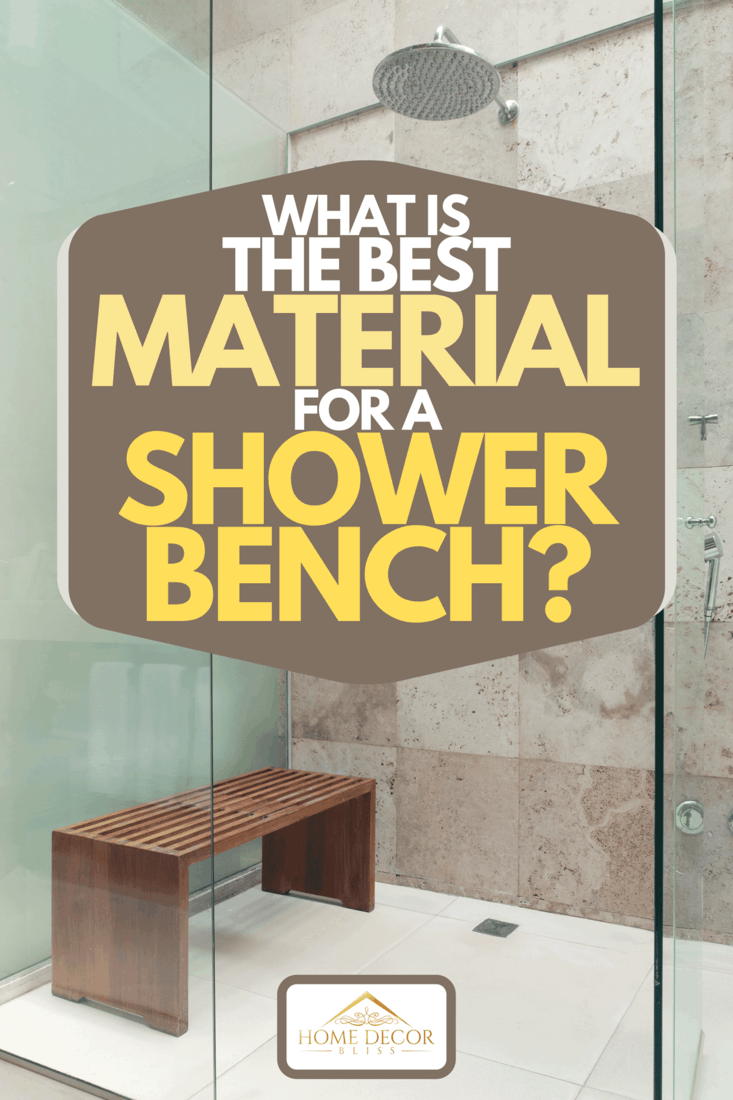A shower bench is a great way to create a relaxing atmosphere in your bathroom. It provides you with a place to sit and rest before, during, or after your shower. Some people rely on shower benches because they are elderly or have difficulty ambulating, while others just like the utility of being able to sit in the shower. Your shower bench's material choices will go a long way in making it comfortable and visually pleasing. You may be wondering, "What is the best material for my shower bench?" Not to worry because we've researched this to get the answer for you!
The best materials for shower benches are teak, wood, or stone. Unlike most other woods, teak holds up well to excessive moisture. Wood may be warmer and more comfortable for a shower bench compared to other options. Stone benches, both natural and manufactured, are the next best option. They are very durable and require less maintenance than wood. Materials like granite or marble are beautiful and may match your bathroom's aesthetic better than wood.
We've found the best material options for shower benches to present you with their required maintenance and more to give the most comprehensive look at what's available. Read on to find out more about the best shower bench for you!
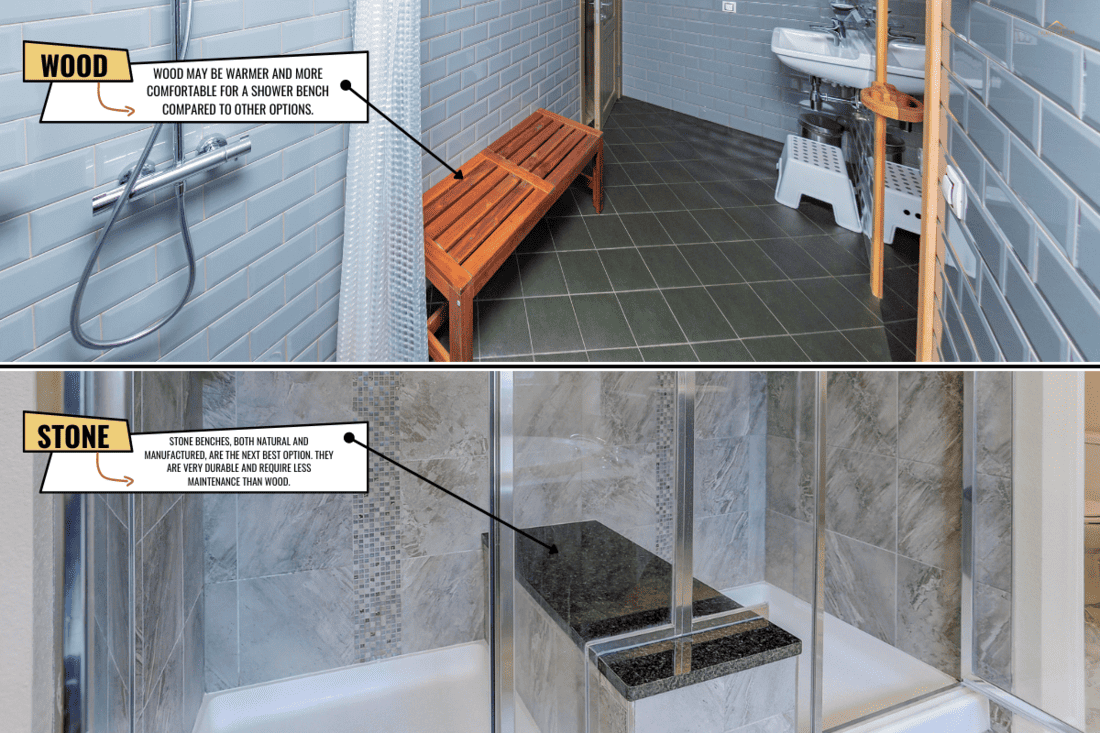
Natural Materials Are Best
The two most common materials for a good shower bench have always been wood and stone. Natural materials accommodate both aesthetics and practicalities, such as comfort and cleanliness.
We sometimes add affiliate links and content that was curated and created by our team with the help of advanced ai tools to help showcase the best design styles.
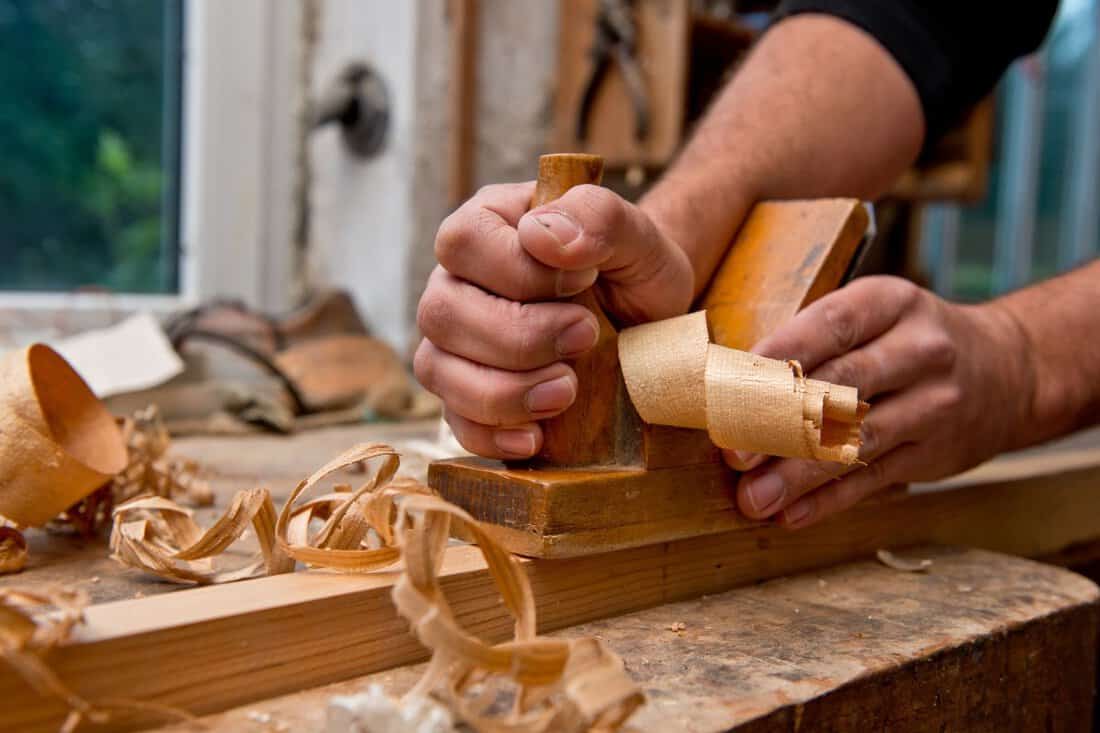
Other materials like metal or plastic are not commonly used by choice. Plastics are cheaper, but they are not as durable and often not chosen for their appearance. Metal can fluctuate in temperature to be uncomfortable, not to mention often unsightly in design comparison. With both metal and plastic, there is also the possibility of material staining, rusting, or growing mold.
Wood
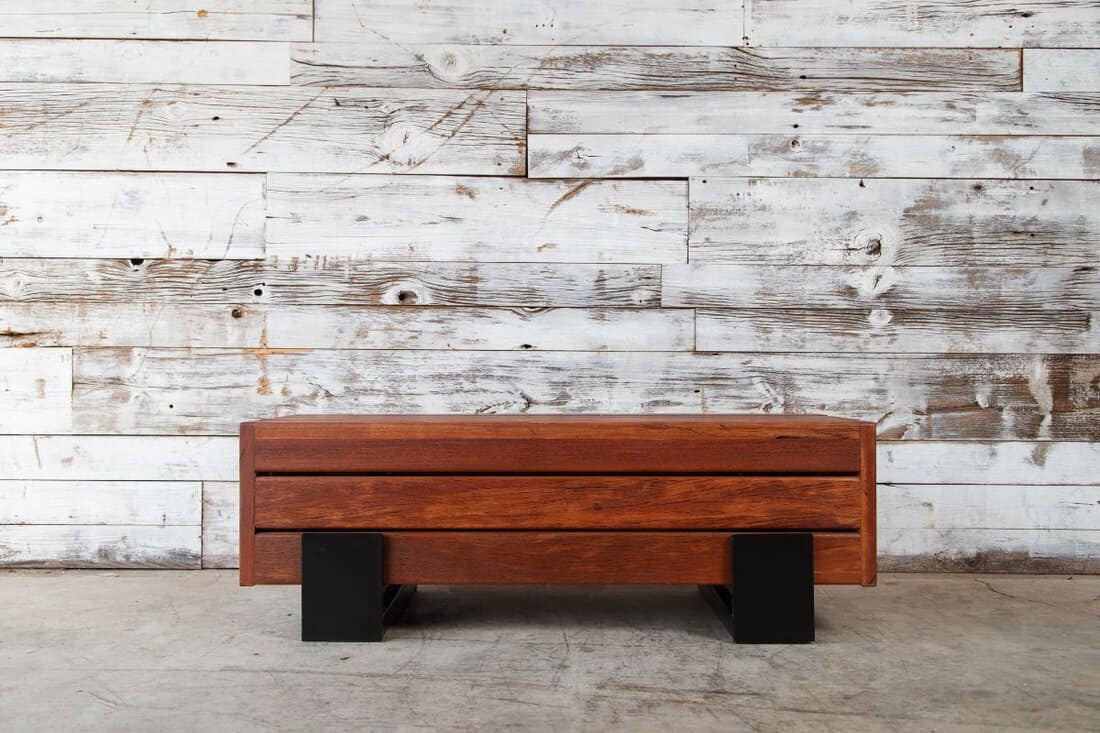
Teak wood contains natural oils that repel water and prevent the wood from warping, cracking, or becoming too brittle. Wood tones often offer a calming presence, and this makes them ideal for a bathroom bench. It can give the visual appeal of a sauna or spa chair. Considering shower temperatures, wooden benches are generally not too cold or too hot for comfort.
Click here to see this corner-fitting shower bench on Amazon.
It is still important to maintain the teak to ensure that it does not discolor or get damaged. The best way to do this is to use a specialized teak cleaning solution. You also want to occasionally apply teak oil and let it soak into the wood to continue giving it great water-repelling abilities.
It is inadvisable to use almost any other wood for a shower bench because none have quite the same qualities as teak. Some more affordable shower benches can be made from bamboo, but bamboo does not have the same mold-resistant capabilities. This would make it a poorer choice for a constantly moist environment like the shower, without constant maintenance.
Click here to see this teak wood shower bench on Amazon.
Stone
Many bathrooms feature stone, so it is a natural extension to use it as a shower bench material. It's not uncommon to match the shower bench surface to other bathroom materials, such as the vanity counter or floor tiles. You can divide these into three main categories - natural cut stone, stone tiles, and manufactured stone.
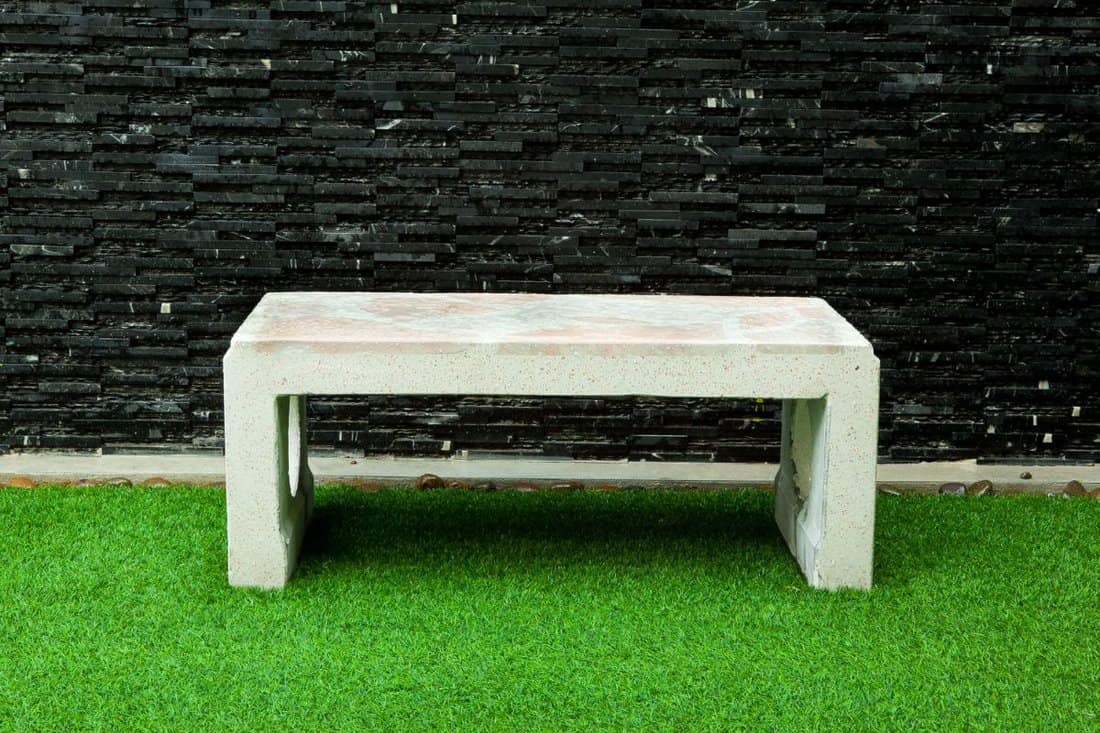
Marble and granite are stunningly beautiful natural stones to use for a shower bench, but they are porous. These choices are more expensive and beautiful, but they can naturally absorb water, and so they must be sealed to prevent water damage. They may also need to be resealed in the future, increasing maintenance costs.
Tiles can be used for a shower bench, especially if they already match the shower tiles. This would keep a cohesive look in the shower as you would almost not notice the bench. These tile benches are usually built-in. Some people do no like tile because it may be less comfortable to sit on, expose grout, and can pool water.
To avoid marble or granite's major expense but keep a clean and simple appearance, you can opt for a manufactured stone like quartz. Quartz is not porous and will need sealing maintenance. Quartz can generally be found for less than other natural stones, and there is a large variety of styles to pick from. It's practically maintenance-free upkeep is also a plus. This kind of shower bench can be easier to clean and more comfortable to sit on. You can also mix and match some stone materials like a benchtop of white quartz, with subway tiles on the sides.
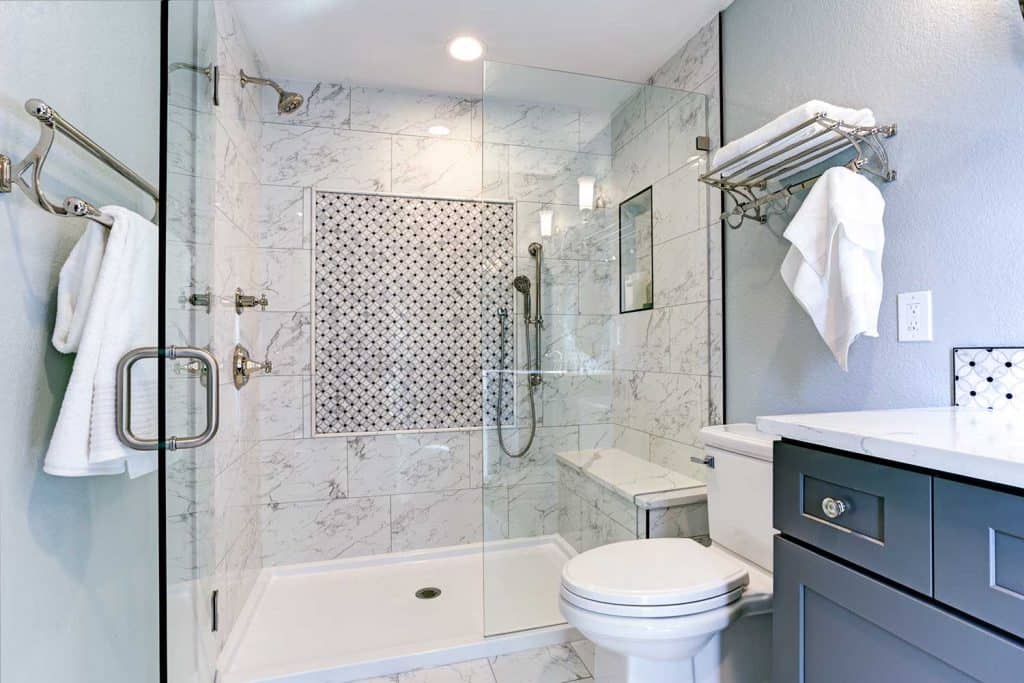
Should You Put A Bench In Your Shower?
You may wonder if you even want a shower bench in the bathroom in the first place. Shower benches offer benefits to anyone who wants a more leisurely showering experience. If you are elderly or have difficulty standing - a shower bench offers a reprieve. If you like to take your time and indulge during your showering experience, having a seat helps.
For those who only spend as much time as needed to shower, this might be a waste of space -even if you don't plan to sit much. However, an existing shower bench can give you additional shelf space. If you need help finding a good shower bench option for a smaller space, you can read our article, "Best Shower Benches For Small Showers."
What Can You Use For A Shower Bench Top?
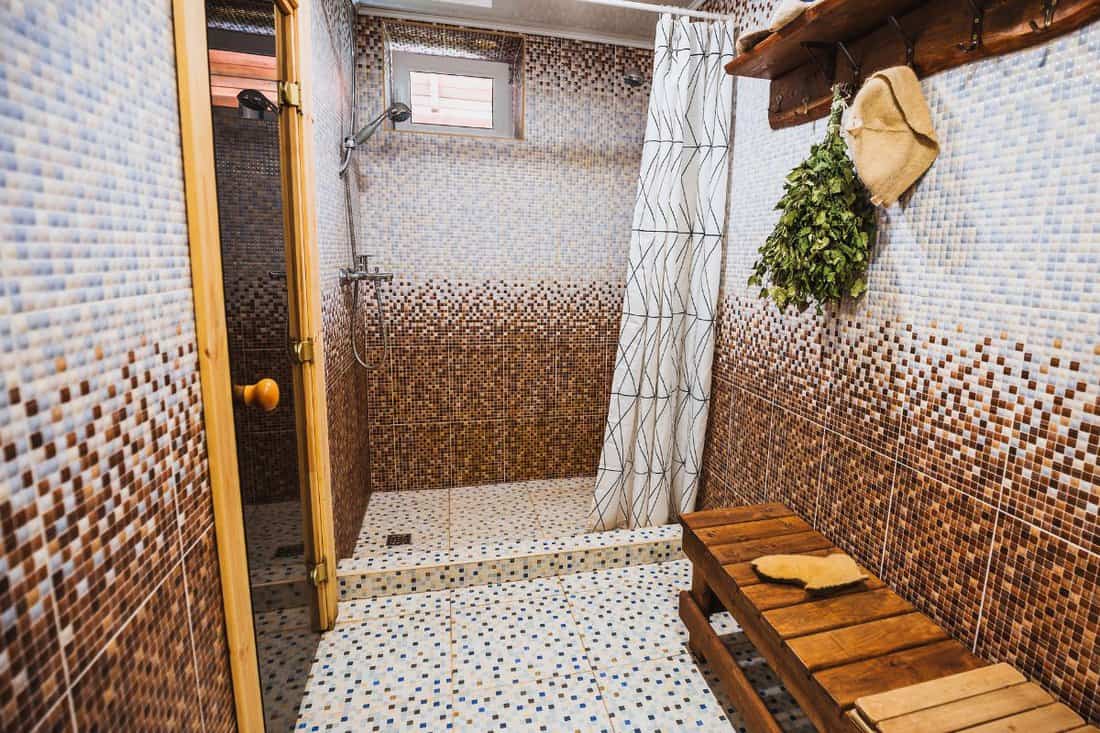
A shower benchtop can be made from a different material than it's sides. You can commonly see something like tile sides with a marble slab top for contrast. The top should be comfortable to sit on and easy to maintain. A teak wood top can be temperature stable and comfortable at any point in the shower. Regardless of what material you choose for the top of your shower bench, it is important to maintain it. Teak wood can use continued cleaning and teak oil, while some natural stones need to be treated to remain water-resistant.
What Is A Good Height For A Shower Bench?
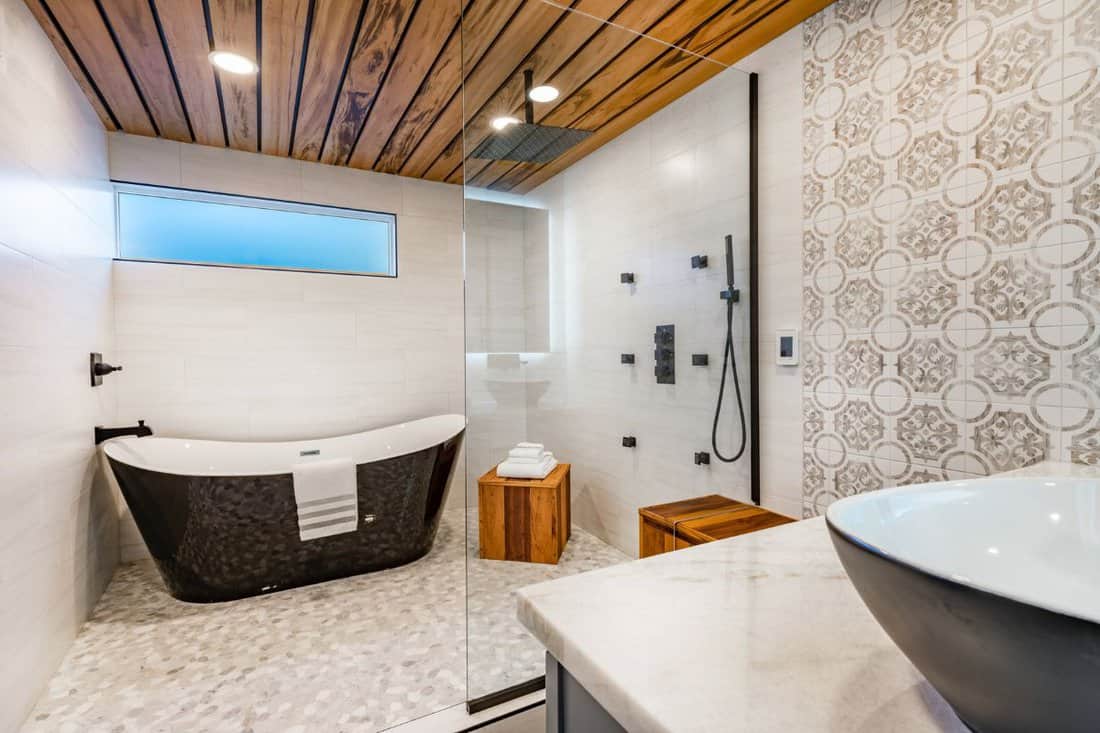
A good shower bench height is between 17 and 19 inches. This is a standard, and it complies with the Americans with Disabilities Act regulations for shower bench seating heights. This height is determined by the length from the floor to the inside of the knee so that it is easy to get up and down from the seat. The seat height and comfort are very important for safety as you will be standing up and sitting down in a wet shower. For more information on shower bench standards, you can check out our article, "What Is The Standard Size Of A Shower Bench?"
In Conclusion
As with all aspect of your home's design, a shower bench is an opportunity to bring yourself joy. It's a utility in that it can help you have more comfortable and effective showers. As a luxury, a bench can allow you to really spend more time doing something that relaxes you. Whatever the reason may be for wanting to own a shower bench, it is important to choose well. You can make a choice that is beautiful, comfortable, and easy to keep for a time.
